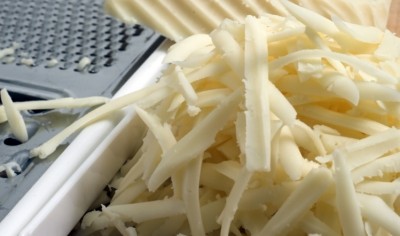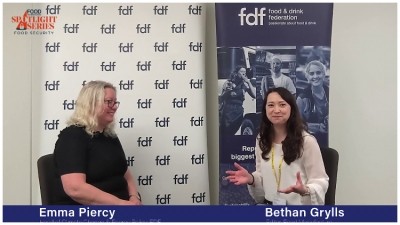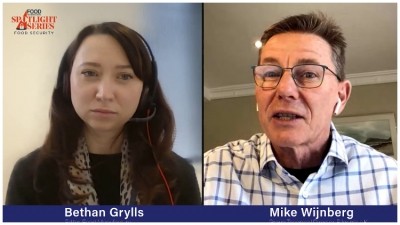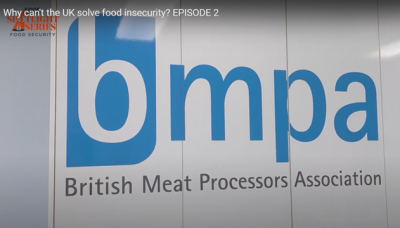Video
Why can't the UK solve food insecurity? Episode four
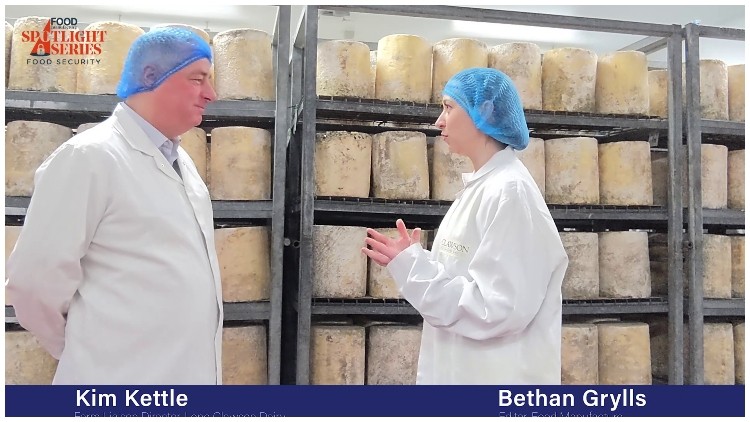
In this episode our editor hears from Kim Kettle, farm liaison director of Long Clawson Diary and Paul Eggleston who runs Bridge Farm - just down the road - one of the cooperatives of Long Clawson that supplies milk to the factory. Scroll down to watch episode four of this seven-part documentary on food security sponsored by RSSL.
In his interview, Kettle spoke about the challenges of exporting and the benefit of paying a bit more to look after the local farmer.
"There's a big opportunity for people in the dairy sector to look at products that we import and try and manufacture some of those instead, and work with our farmers to grow our pool of milk so we're able to sell more products on the domestic market whilst helping to grow the UK economy by exporting," he said.
Commenting on the impact of the UK's departure from the EU, Kettle said they knew it wasn't going to be easy but rather than complaining they pressed on with the task in hand.
"We could have spent a lot of time moaning about what we had to do, but we focused on the task and made sure we got the infrastructure to manage the task - and yes, it does take a lot more time and a lot of support to achieve the exports prior to Brexit, but that is part of what the British consumer chose to do."
Kettle also mentioned that as a manufacturer producing the prestigious stilton cheese, which can only be made in three English regions, Long Clawson had attracted attention from the government and hosted several notable names. During these visits, Kettle said the cheese company was able to flag some of the challenges it faces and suggest ways the UK Government could help streamline protocols to free up time. In this way, Kettle said the manufacturer could focus its attention on developing markets overseas whilst looking at the cost of production and supporting farmers.
When asked about the advantage of being more self-reliant, Kettle said: "We've all seen what's happened with energy when we got dependent on overseas."
He added: "It costs a bit more to support the farmers, but if we do have events - conflict, weather - occurring in other parts of the world, our supply chain is still under our control."
Following Kettle's interview, our editor jumped back in the car and journeyed down the road to one of the dairy's affiliated farms. Eggleston showed her round the farm before sitting down for a chat.
Opening the conversation, Eggleston offered his thoughts on what food security is: "Food security depends what types of food you're referring to - we can grow and rear lots of food in the UK, but our climate isn't suitable for other livestock and crops. As an affluent nation, we have developed quite a broad diet. There is a link between eating seasonal, regional produce and trying to source a diet that isn't sustainable in the UK.
"We have a fantastic array of unseasonal produce and we've just come to expect that. If we consumed more as a nation of the produce we can grow efficiently in this country, it would increase food availability to all, albeit limiting variety."
Eggleston also described how his farm, which operates on a pasture-based system, works and what the benefits are of this regenerative practice.
"Bridge farm is approximately 300 hectares of grassland which is very rarely cultivated - we are feeding a pasture-based system to milking cows and young stock to maximise the consumption of grazed pasture, so we've converting grass into high solids milk.
"The farm is divided into areas that can be grazed by the cows in a 12-hour period, and the cows walk long distances to access a different paddock. They consume all the pasture in that paddock and depending on the time of year and growth rates, they'll move faster or slower around the farm. Whilst there is some grain fed as to make up the diet, 90%+ is from grazed diet.
"One of the big benefits of pasture-based is soil health. We are testing high organic matters in our soils - so they're very fertile, there's a huge carbon in them and they have good moisture retention. Our farm is sequestering around 12,000 tons of carbon into the soil per year and that helps to grow grass."
Watch episode one here, with Anna Taylor of the Food Foundation, episode two here, with Nick Allen of BMPA, and episode three here, with Mike Wijnberg of Pilgrim's UK. This is a seven-part series, with episode five available later today.

